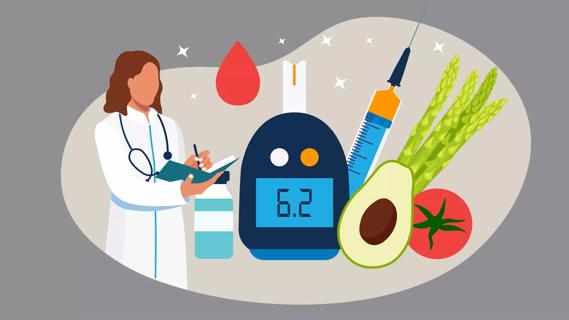Caring can come at a cost to your mental health

We’re dealing with a lot these days. And when you fold in all of our personal obligations and challenges, it’s no wonder that so many of us are feeling exhausted – and frankly – like we have no more energy to care.
Advertisement
Cleveland Clinic is a non-profit academic medical center. Advertising on our site helps support our mission. We do not endorse non-Cleveland Clinic products or services. Policy
With so many competing priorities of what we should care about and pay attention to, it’s starting to come at a cost to our mental health. What many people don’t realize is that our ability to relate to and care for others (aka our empathy) is a limited resource. If we drain our empathy account, we can end up feeling some pretty negative emotions, which experts call “empathy fatigue.”
Here psychologist Susan Albers, PsyD, shares insight about this phenomenon and why more than ever, many people are experiencing it. She also offers practical advice on learning to recognize it and moving forward.
At worst, empathy fatigue is a person’s inability to care. It’s the negative consequence of repeated exposure to stressful or traumatic events. It can manifest both emotionally or physically.
Emotional symptoms can include:
Advertisement
Physical symptoms can include:
“Empathy fatigue is the emotional and physical exhaustion that happens from caring for people day, after day, after day,” explains Dr. Albers. “Over time, we start to see people experiencing a sense of numbness and distancing or difficulty continuing to care.”
Empathy fatigue is a defense mechanism, she continues. It’s your body’s way of telling you to pay attention and to take a step back to care for yourself.
Empathy fatigue is sometimes referred to as “the cost of care.”
That’s because in the past, empathy fatigue mainly impacted healthcare and other frontline workers due to the nature of the work. Doctors, nurses, therapists, first responders and journalists were most at-risk. These professions are repeatedly exposed to stressful or traumatic events, leaving them susceptible to becoming traumatized themselves by what they experience or feel through others.
Empathy fatigue has also been thought of as a secondary traumatic stress disorder. It’s the type of stress that comes from helping people day in and day out or witnessing or helping a person go through something awful. The stress and hardship of what you’re experiencing, seeing and feeling starts to take a toll on you.
“When we’re under stress day after day, it’s like a constant drip of cortisol that goes to our brain,” says Dr. Albers. “And we can only do that for so long until our body and mind start to break down.”
If the symptoms of empathy fatigue feel all too familiar, you’re not alone. Dr. Albers says because of all of the changes we experience every year, many people outside of healthcare are starting to experience signs of empathy fatigue.
Parents, teachers and grocery store workers are all feeling the negative effects of repeated stress and constant change.
If you watch the news every day, you may feel overwhelmed by what's happening in the world around you and overseas.
If you’ve lost your job or a loved one, you might have a difficult time understanding and remembering that others around you might also be facing hardship.
Or maybe your best friend’s house burned down because of the wild fires and it shook you to your core.
Advertisement
“Day after day we’re hearing all of this bad news and these sad stories, and at first you might hear it and take it to heart,” says Dr. Albers. “But after sometime, you might find yourself tuning out or feeling numb to it saying, ‘Oh, that’s just another story about a wildfire,’ which wouldn’t be your typical response.”
It’s almost like we’ve grown accustomed to bad news and negative things happening in our world, which in turn has started to drain our empathy account. You might feel emotionally cut off from what’s happening around you or unsympathetic to MORE bad news. You might have even said or thought to yourself “I just don’t care anymore.”
But take heart – empathy fatigue doesn’t have to last forever.
Empathy fatigue can go hand-in-hand with caution fatigue. But it’s important to remain vigilant and be mindful about what we’re doing to help and protect others, while also taking care of ourselves.
Empathy fatigue can eventually slip into depression, so it’s so important to pay attention to how you’re feeling, address those feelings and move forward with caring for yourself and those around you.
“When we’re talking about empathy fatigue in terms of treatment, we like to think about the ABC model,” explains Dr. Albers. “We need to work on our awareness, our balance of everything going on and our connection with others.”
Advertisement
Here is more about what that means:
Advertisement
Learn more about our editorial process.
Advertisement

It’s common to experience long-term emotional effects, but you don’t have to cope alone — support and treatment can help

Ground yourself in evidence, name your thoughts out loud and meet yourself in the middle to help defuse worst-case scenarios

Fill your coping toolbelt with healthy skills like getting outside, writing in a journal, volunteering, laughing or talking with a friend

We all experience some stress from time to time, but chronic stress can contribute to health issues like diabetes and cardiovascular disease

Getting outside, eating a healthy diet, taking up journaling, listening to music — even cuddling a pet — can provide stress relief

Give these 30+ grocery items a try to help find relief

In response to stress or danger, your brain responds by either defending itself, running away, stopping or reconciling

A diabetes diagnosis, new or long-standing, can trigger reactions like grief, stress, depression and frustration, but symptom relief and help are available

If you’re feeling short of breath, sleep can be tough — propping yourself up or sleeping on your side may help

If you fear the unknown or find yourself needing reassurance often, you may identify with this attachment style

If you’re looking to boost your gut health, it’s better to get fiber from whole foods